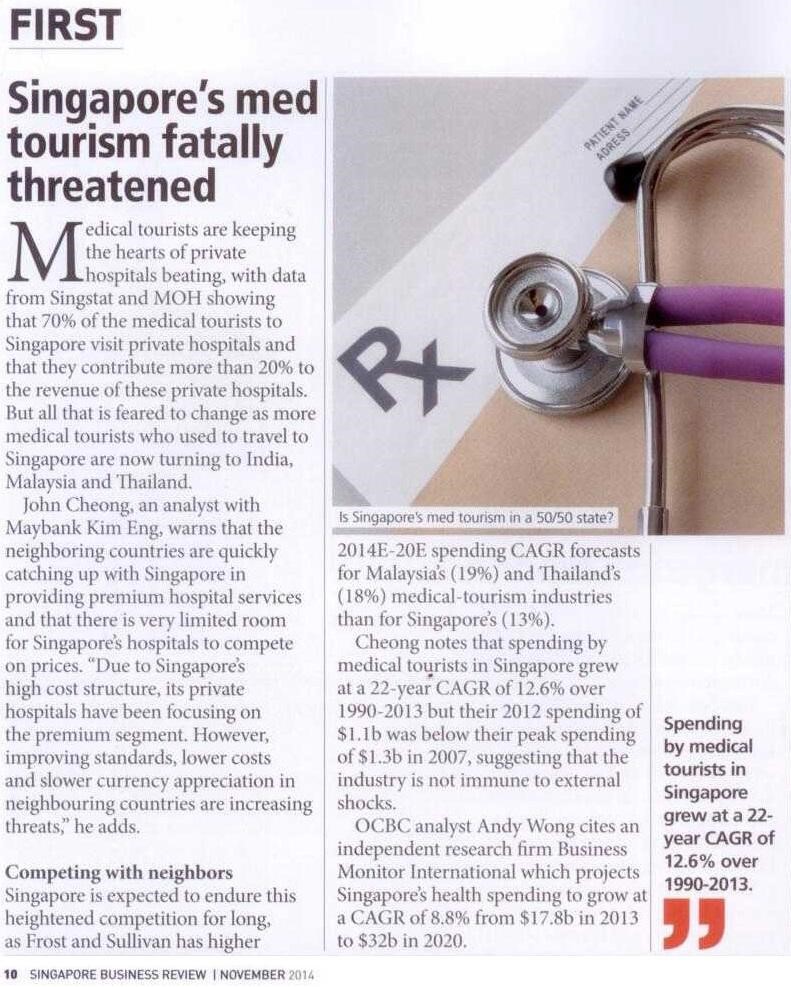Emeritus Prof Sir Gordon Arthur Ransome (1910-1978)
Today one of the four colleges at the Duke-NUS Graduate Medical School is named after Emeritus Prof Sir Gordon Arthur Ransome, remembered by many as the founder of modern medicine in Singapore and admired as an outstanding and brilliant clinician. His contributions to medicine in Singapore went back to 1938, when he was made Associate Professor of Medicine at the then King Edward VII College of Medicine. He also founded the Singapore Academy of Medicine and was its first Master.
The following is taken from an oration to mark Prof Ransome’s retirement in 1971: The life and times of Gordon Arthur Ransome by Seah Cheng Siang in Annals of the Academy of Medicine, January 1972, Vol. 1 (Bolding by HCS)
http://ams.edu.sg/view-pdf.aspx?file=media%5C591_fi_219.pdf&ofile=gar+01.pdf
Foremostly, Professor Ransome taught by example. Himself a well-trained clinician, he has handed down to hundreds of doctors, clinical methods which were learnt from his teachers and also those innovated by his own increasing experiences.
In taking a meaningful medical history, he has on many occasions, and still does so now, sit by the bedside, eliciting point by point the story of the patient’s illness, with students watching on. From the history and adopting Lord Horder’s methods, a list of possible diagnoses to account for the presenting symptoms, is then compiled.
In front of the students, Professor Ransome will then examine the patient meticulously. A very careful inspection from head to foot is followed by an examination in minutia of the different systems. . .
From the signs culled, and with the results of some laboratory tests, he has nearly in every instance been able to arrive at a definitive diagnosis. A firm diagnosis by this method and not by intuition, is always teachable. He converted many a doctor from practising intuitive diagnosis into exercising a perceptive scientific method.
Another interesting insight into his powers of diagnosis comes from Sir Gordon Arthur Ransome by Beng Yeong Ng and Jin Seng Cheah in Annals Academy of Medicine May 2008, Vol. 37 No. 5 (Bolding by HCS)
http://ams.edu.sg/view-pdf.aspx?file=media%5C614_fi_929.pdf&ofile=V37N5p426.pdf
He taught from first principles and emphasised the importance of the use of the 5 senses in the practice of medicine. He placed importance on the art of listening, the essence of the artistry of bedside medicine. Effective listening involves all the senses, not merely the ears. To succeed in healing, a doctor must be trained, above all else, to listen. His skills as a diagnostician were renowned. He believed that X-rays findings tended to lag behind the physical signs. Without any laboratory tests, he was able to arrive at an accurate diagnosis just by taking a comprehensive history and examining the patient skilfully. He was nicknamed “kosong” (meaning “zero” in Malay) as he would give a student zero marks for poor performance in clinical examination.
This letter from Dr Quek Koh Choon, one of Prof Ransome’s former students, appeared in the Sunday Times on 26 April 2015 and again highlights the importance Prof Ransome attached to observation – note “Tests and investigations were needed only to confirm the diagnosis. (Bolding by HCS)
http://www.pharmacychoice.com/News/article.cfm?Article_ID=1366630
If Professor Gordon Arthur Ransome were alive today, he would be pleased to see how Singapore has become a great medical centre (“Prof hopes S’pore becomes medical hub”; last Sunday).
I was privileged to have been taught by him, and to also have had the opportunity to work with him.
He taught me that the practice of medicine is not just a science, but also an art. He emphasised the need to observe the patient as he came into the consultation room – to watch his gait and facial expressions – and also advocated listening to the patient well.
These days, many patients say that many doctors are not listening enough to their complaints, and that they are quickly dismissed to undergo a battery of tests and investigations.
Prof Ransome did not think it wise to resort quickly to investigations. He believed that a great deal could be learnt from a patient’s history, and that astute observation and a thorough examination were key in clinching the diagnosis. Tests and investigations were needed only to confirm the diagnosis.
I used to accompany Prof Ransome on his ward rounds, and he surprised me when, at the end, he invited me to sit down with him and asked for my opinion of the various cases.
I was the most junior doctor then, and the experience certainly jolted me and taught me to value mutual respect among fellow colleagues and to be open to consider an opinion, even from a novice.
Prof Ransome treated all patients with respect and kindness, and did his best for them no matter what their status and background were. Once, he was called to attend to a VIP while examining a patient in a C ward. He said that the VIP had to wait as he was still attending to his patient.
He was a doctor devoted to the practice of medicine. He did not care much for accolades and prestige. Patients were his priority.
He was truly one of the great founders of modern medicine in Singapore. His inspirational values should be remembered by all who follow in the tradition of good doctors and healers.
Quek Koh Choon (Dr)
We can only guess at what Prof Ransome would have thought of today’s Ministry Of Health insisting that all diagnosis be based only on test results and supposedly evidence based medicine. One can sense his disappointment and hear him cry, “What about the patient? The patient will tell you what’s wrong if you just listen! Just listen – with all your senses! I am giving you zero!”

